Key Takeaways
1. Management's new paradigms: Shifting from business-centric to universal application
Management is the specific and distinguishing organ of any and all organizations.
Universal application. Management principles are not limited to business enterprises but apply to all organizations, including nonprofits, government agencies, and educational institutions. This paradigm shift recognizes that management's core function is to make institutions capable of producing results outside themselves, regardless of the sector.
Evolving assumptions. Traditional management assumptions are being challenged:
- Management is no longer synonymous with business management
- There is no single "right" organization structure
- People management requires diverse approaches
- Technology and end-users are not fixed
- Management's scope extends beyond legal and political boundaries
These changes necessitate a reevaluation of management practices across all sectors, emphasizing the need for adaptability and a broader perspective on organizational effectiveness.
2. Strategy in uncertainty: Embracing new certainties for future success
Strategy converts this Theory of the Business into performance.
New certainties. In an era of rapid change, strategy must be based on new certainties:
- Collapsing birthrate in developed countries
- Shifts in the distribution of disposable income
- Redefining performance
- Global competitiveness
- Growing incongruence between economic and political realities
Demographic shifts. The collapsing birthrate in developed countries will have profound implications:
- Aging workforce and changing labor markets
- Need for increased productivity to maintain economic growth
- Potential for social and political turbulence
Economic realities. Strategies must account for:
- Changing consumer behaviors and preferences
- Shifts in global economic power
- The rise of knowledge-based economies
Organizations must adapt their strategies to these new certainties to remain competitive and relevant in the evolving global landscape.
3. Leading change: Balancing innovation with continuity in turbulent times
One cannot manage change. One can only be ahead of it.
Change leadership. Effective leaders must:
- Develop policies to create the future
- Implement systematic methods to anticipate change
- Introduce change both within and outside the organization
- Balance change with continuity
Organizational abandonment. Leaders must regularly evaluate:
- Which products, services, or processes should be abandoned
- Where resources are being wasted on maintaining the obsolete
- How to free up resources for innovation and growth
Innovation and improvement. Change leaders focus on:
- Continuous improvement (Kaizen)
- Systematic innovation
- Exploiting success and building on strengths
By embracing these principles, organizations can navigate turbulent times, fostering a culture of innovation while maintaining stability and continuity.
4. Information revolution: From data processing to meaningful insights
The purpose of information is not knowledge. It is being able to take the right action.
Shift to information. The new information revolution focuses on:
- Moving from the "T" (technology) to the "I" (information) in IT
- Providing meaningful insights rather than just data
- Enabling better decision-making and action
Information needs. Organizations must identify:
- What information is needed for decision-making
- How to organize and present information effectively
- Ways to turn data into actionable insights
Outside information. Crucial areas of focus include:
- Understanding markets and customer needs
- Tracking technological developments
- Monitoring global economic trends
By prioritizing meaningful information over raw data, organizations can make better decisions, adapt to changing environments, and create value in the knowledge economy.
5. Knowledge worker productivity: The 21st century's key management challenge
The most valuable assets of a 21st-century institution, whether business or nonbusiness, will be its knowledge workers and their productivity.
Productivity factors. Six major factors determine knowledge worker productivity:
- Task definition
- Autonomy and self-management
- Continuous innovation
- Continuous learning and teaching
- Quality over quantity
- Treating knowledge workers as assets, not costs
Organizational implications. To increase knowledge worker productivity, organizations must:
- Redefine tasks and objectives
- Provide autonomy and resources for self-management
- Foster a culture of continuous learning and innovation
- Develop new metrics for measuring quality and contribution
Economic impact. Improving knowledge worker productivity is crucial for:
- Maintaining competitive advantage in the global economy
- Driving innovation and economic growth
- Adapting to demographic shifts and aging workforces
By focusing on these factors, organizations can unlock the full potential of their knowledge workers and thrive in the 21st-century economy.
6. Self-management: The imperative for knowledge workers to take charge
More and more people in the workforce—and most knowledge workers—will have to MANAGE THEMSELVES.
Self-assessment. Knowledge workers must understand:
- Their strengths and how to leverage them
- Their preferred work style and learning methods
- Their values and ethical standards
Career management. Self-management involves:
- Identifying where one belongs in an organization
- Taking responsibility for one's own development
- Making informed decisions about career moves and opportunities
Continuous improvement. Knowledge workers should:
- Use feedback analysis to track performance
- Continuously update skills and knowledge
- Adapt to changing work environments and technologies
By taking charge of their own development and career paths, knowledge workers can maximize their contributions and achieve greater satisfaction in their professional lives.
7. Contribution and values: Aligning personal strengths with organizational needs
To be effective in an organization, one's own values must be compatible with the organization's values.
Value alignment. Effective performance requires:
- Understanding personal values and ethics
- Identifying organizational values and culture
- Ensuring compatibility between personal and organizational values
Contribution focus. Knowledge workers should ask:
- "What should I contribute?"
- "How can I best leverage my strengths?"
- "What does the organization need most from me?"
Career decisions. When considering opportunities, evaluate:
- Fit with personal strengths and work style
- Alignment with personal values and ethics
- Potential for meaningful contribution
By aligning personal strengths, values, and contributions with organizational needs, knowledge workers can create fulfilling careers and drive organizational success.
Last updated:
FAQ
What's "Management Challenges for the 21st Century" about?
- Focus on Future Challenges: The book addresses the management challenges that organizations will face in the 21st century, focusing on future issues rather than current trends.
- Key Management Paradigms: It explores new paradigms in management, emphasizing the need for organizations to adapt to profound transitions in society, economy, and technology.
- Knowledge Worker Productivity: A significant portion of the book is dedicated to increasing the productivity of knowledge workers, which Drucker sees as crucial for future success.
- Self-Management: The book also discusses the importance of individuals managing themselves, especially in a rapidly changing work environment.
Why should I read "Management Challenges for the 21st Century"?
- Forward-Looking Insights: Drucker provides insights into future management challenges, making it essential for those looking to stay ahead in their fields.
- Practical Advice: The book offers practical advice on how to manage oneself and one's organization in a time of rapid change.
- Comprehensive Coverage: It covers a wide range of topics, from knowledge-worker productivity to the impact of demographic changes on management.
- Renowned Author: Peter F. Drucker is a respected authority in management, and his perspectives are valuable for anyone interested in the field.
What are the key takeaways of "Management Challenges for the 21st Century"?
- Embrace Change: Organizations must become change leaders, seeing change as an opportunity rather than a threat.
- Focus on Knowledge Workers: Increasing the productivity of knowledge workers is crucial for future success.
- Self-Management: Individuals must learn to manage themselves, including understanding their strengths and how they perform best.
- Strategic Thinking: Organizations need to base their strategies on new certainties, such as demographic shifts and global competitiveness.
How does Peter F. Drucker define "Management's New Paradigms"?
- Beyond Business Management: Drucker argues that management is not just business management; it applies to all organizations.
- No One Right Organization: There is no single correct way to organize; different structures suit different tasks and conditions.
- Focus on Results: Management should focus on results and performance, not just internal processes.
- Adaptability: Organizations must be adaptable to survive in a rapidly changing environment.
What is the significance of "Knowledge-Worker Productivity" in the book?
- Central Challenge: Drucker identifies increasing the productivity of knowledge workers as the most important management challenge of the 21st century.
- Quality Over Quantity: Unlike manual work, knowledge work focuses on quality and innovation rather than just output.
- Self-Management: Knowledge workers must manage themselves, taking responsibility for their productivity and contribution.
- Continuous Learning: Knowledge work requires continuous learning and teaching, making it a dynamic and evolving field.
How does "Managing Oneself" contribute to personal and professional growth?
- Self-Awareness: Individuals must understand their strengths, how they perform, and their values to manage themselves effectively.
- Career Planning: Knowing where one belongs and what contribution one can make is crucial for career success.
- Relationship Responsibility: Effective self-management includes taking responsibility for relationships and communication.
- Second Half of Life: Drucker emphasizes planning for the second half of one's life, including potential career changes or parallel careers.
What are the "Information Challenges" discussed in the book?
- Focus on Information, Not Data: Drucker emphasizes the need to focus on meaningful information rather than just data collection.
- Outside Information: Organizations need information about the external environment, including markets, customers, and competitors.
- Organizing Information: Information must be organized to be useful, requiring new concepts and methodologies.
- Decision-Making: Effective information systems support strategic decision-making and help organizations adapt to change.
What strategies does Drucker suggest for "The Change Leader"?
- Organized Abandonment: Organizations should regularly review and abandon practices that no longer contribute to performance.
- Continuous Improvement: Systematic improvement should be a part of every process, leading to innovation and change.
- Exploiting Success: Successful organizations focus on opportunities and build on their successes.
- Piloting Change: New initiatives should be tested on a small scale before full implementation to manage risks.
How does "Strategy—The New Certainties" guide organizational planning?
- Demographic Changes: Organizations must consider the impact of demographic shifts, such as aging populations, on their strategies.
- Global Competitiveness: Competing globally requires meeting the highest standards in every aspect of business.
- Economic and Political Realities: Strategies must account for the incongruence between economic globalization and political boundaries.
- Performance Definition: Organizations need to redefine performance to balance short-term results with long-term sustainability.
What are the best quotes from "Management Challenges for the 21st Century" and what do they mean?
- "One cannot manage change. One can only be ahead of it." This emphasizes the importance of proactive leadership in a rapidly changing world.
- "The most valuable asset of a 21st-century institution will be its knowledge workers and their productivity." Drucker highlights the shift from physical assets to human capital as the key to success.
- "Management exists for the sake of the institution’s results." This underscores the focus on outcomes and performance rather than just processes.
- "Managing oneself is a revolution in human affairs." Drucker points out the transformative impact of self-management on individuals and organizations.
How does Drucker address "The Governance of the Corporation"?
- Shift in Power: The rise of institutional investors has shifted power in corporations, affecting governance structures.
- Balancing Interests: Organizations must balance the interests of shareholders with those of knowledge workers, who are key assets.
- Measuring Intangibles: The challenge lies in measuring the value of knowledge workers, who are not traditional assets.
- Future Implications: The governance of corporations will need to adapt to the realities of a knowledge-based economy.
What is the role of "The Parallel Career" in managing one's life?
- Second Career: Many individuals pursue a second career in a different field, often in nonprofit organizations, after achieving success in their first career.
- Parallel Career: Some maintain their primary job while developing a parallel career, often in volunteer or community work.
- Social Entrepreneurship: Others become social entrepreneurs, using their skills and resources to address social issues.
- Planning Ahead: Drucker emphasizes the importance of planning for these transitions early in one's career to ensure fulfillment and continued contribution.
Review Summary
Management Challenges for the 21st Century receives mostly positive reviews for its forward-thinking insights on management trends. Readers appreciate Drucker's vision, particularly regarding knowledge workers and self-management. Many find the content still relevant decades later, though some note it feels dated. The book's writing style can be challenging, with repetitive sections and dense language. The final chapter on managing oneself is frequently highlighted as particularly valuable. Overall, reviewers consider it a thought-provoking read for managers and professionals seeking to understand future workplace dynamics.
Similar Books
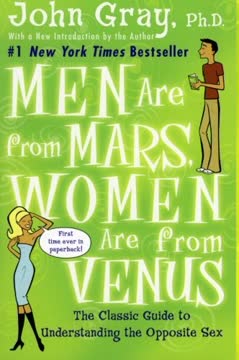

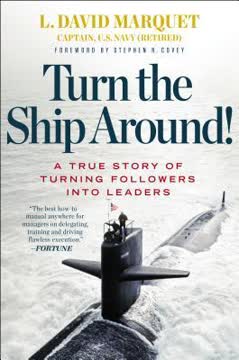

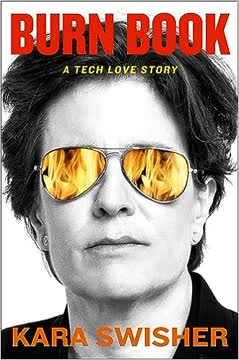


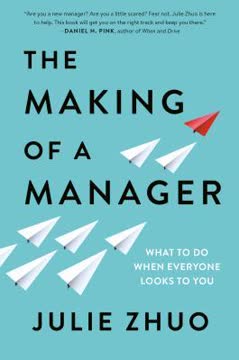

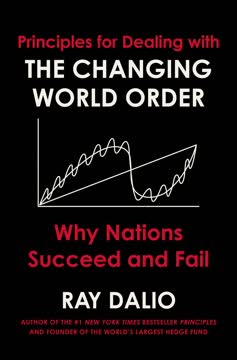
Download PDF
Download EPUB
.epub digital book format is ideal for reading ebooks on phones, tablets, and e-readers.













